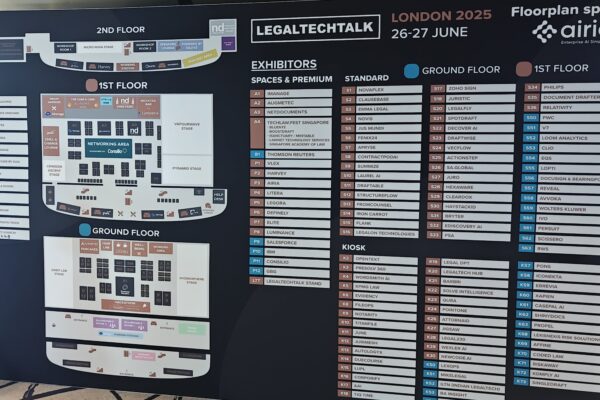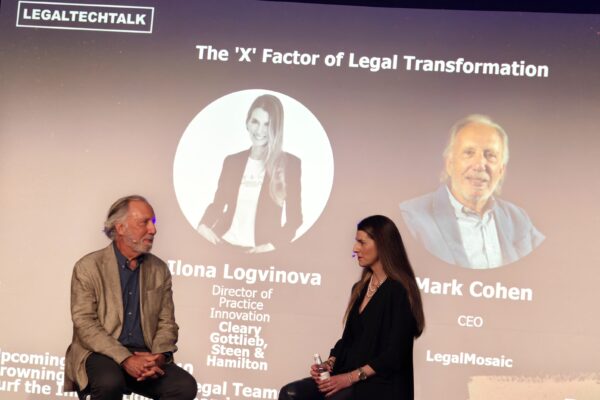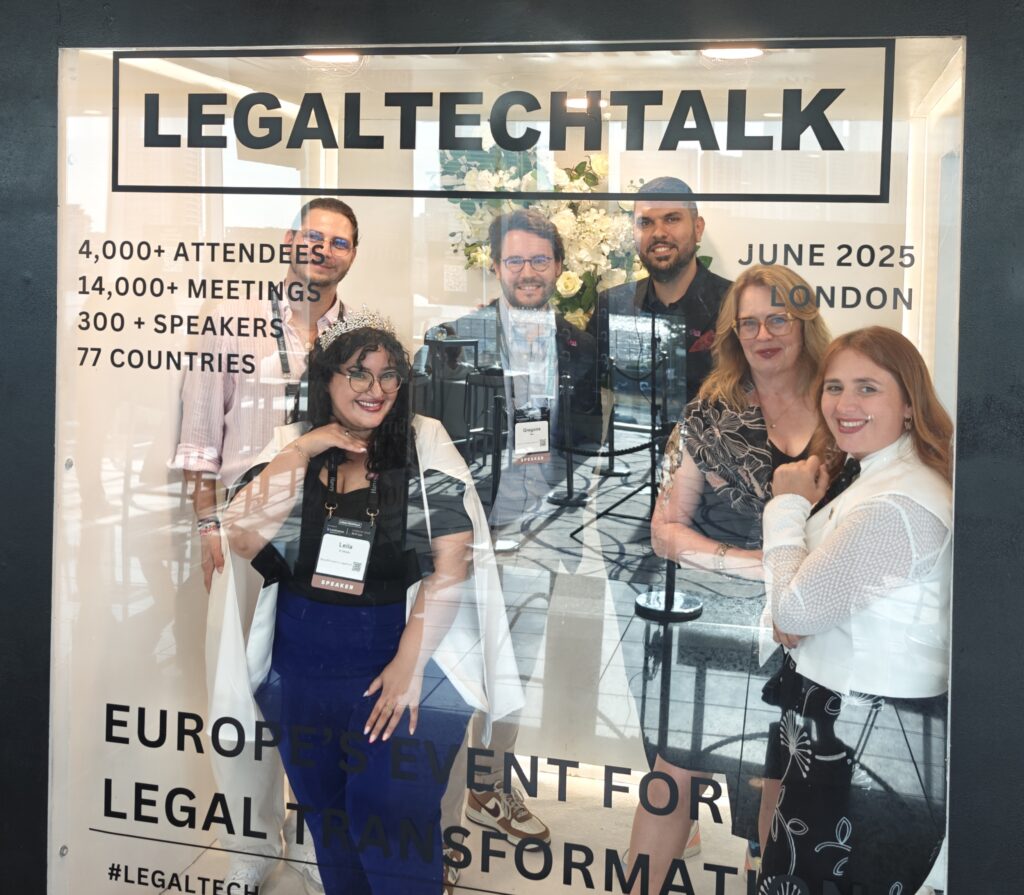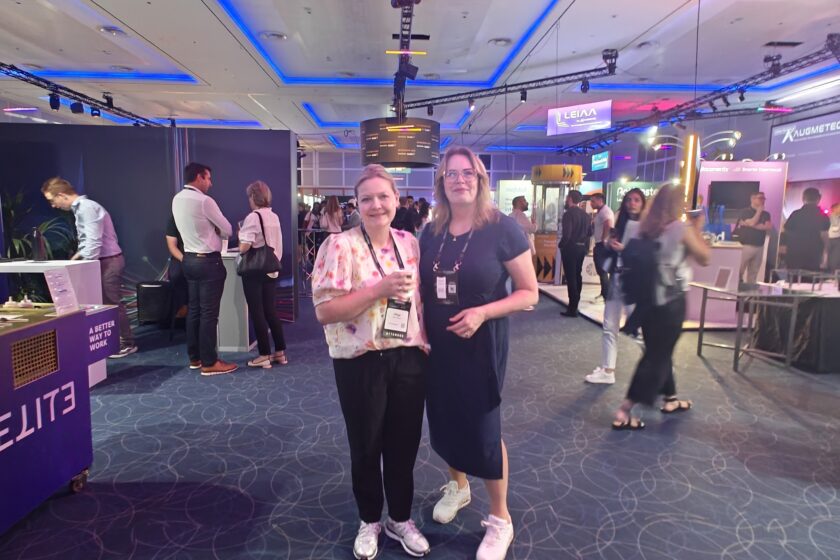LegalTechTalk in London has established itself as one of the most visible gatherings on the legal innovation calendar. With over 4,000 attendees, more than 300 speakers, and representatives from 77 countries, the scale is impressive. But this is not primarily a space for unveiling disruptive new tech or reshaping the legal landscape overnight. Rather, its strength lies in creating visibility and momentum around legal tech as a whole.

Philippa von Seth, Setterwalls, and Sophia Lagerholm, Delphi
This year, the event began with a pre-day seminar hosted by TechTorget, which brought in Scandinavian perspectives on legal tech. It offered a valuable complement to the wider international focus of the main program.

Floorplan and information about exhibitors
This large-scale gathering offered something for everyone. With four main stages and several smaller ones, the event delivered a continuous stream of panel discussions—mostly informal and conversational, often focused on practical themes. Titles included “Dynamic Leadership in Practice: GCs Navigating AI, Sustainability and Beyond”, “Diversity to Dollars: Strategies for an Inclusive Legal Industry”, “Strategising Your Legal Tech Stack: To Build or Buy?”, “GenAI in Legal Practice: Assessing the Return on Investment” and “The Art of Getting Stuff Done: Practical Advice for Powering Forward”.
The program brought together a broad range of voices. Among the many engaging speakers were Leila El Gharbi, Shilpa Bhandarkar, Alison Malin Zoellner, Nicolette Henfrey, Andrea Miskolczi, Matthew Layton, Kyle Gribben, and Conan Hines—just to name a few. While the sessions didn’t necessarily aim to introduce radically new ideas, they helped surface common challenges and confirmed a sense of shared direction across the industry.
One session that stood out for its clarity and forward-looking tone was “The X Factor of Legal Transformation”, with Mark Cohen and Ilona Logvinova. They raised several sharp points about the evolving role of experienced lawyers—not just as legal experts, but as AI-enabled strategic advisors. In this model, legal professionals are supported by data to identify trends, spot patterns, and make more informed decisions. With this analytical foundation in place, they can focus their creativity and curiosity on more complex, high-value work—offering advice that is not only expert and strategic, but grounded in insight rather than instinct.

Mark Cohen, LegalMosaic and Ilona Logvinova, Cleary Gottlieb, Steen & Hamilton
While much of the program revolved around discussions, there were also some practical elements. A handful of workshops offered a more hands-on experience, although access was limited due to small capacity and advance sign-up requirements. One example was Julian Treasure’s condensed session “How to speak so that people want to listen”. In a sector where communication often defaults to technical or formal language, his insights provided a welcome reminder of how delivery affects impact.

Surrounding the core content was a carefully curated environment that aimed to make legal tech feel vibrant and accessible. From DJs and pop-up mocktail bars to booths offering superhero-style photos and barista-made coffee, much of the experience was about atmosphere. LegalTechTalk’s approach isn’t about deep dives or technical complexity—it’s about making legal tech visible, interesting, and culturally relevant. It’s where you bump into old colleagues, meet new ones, and get exposed to the full spectrum of tools on offer in a way that feels more like a tech expo than a traditional conference.

Gitte Trier, Karnov Group, Helena Hallgarn, VQ, and Dorte Carlsson, Copenhagen Legal Tech
And while the tools are certainly there, one message stood out clearly: technology is no longer the bottleneck—people are. As Kyle Gribben pointed out in one panel, success in legal tech now hinges on the people driving it forward. Whether it’s choosing a tech partner with genuine commitment, or building your own network to learn, share, and adapt—relationships and engagement matter. It’s no longer just about what a platform can do. It’s about who stands behind it, how it’s implemented, and whether the people using it are empowered to make real change.
Legal tech today is, more than ever, a people business. And events like LegalTechTalk are less about the next big thing, and more about getting the right people in the room—ready to listen, experiment, and move the transformation forward.

A group of ELTA representatives: Vadym Kuzmenko, Leila El Gharbi, Grégoire Miot, Srdjan Dejanovic, Helena Hallgarn and Marisa Monteiro Borsboom

